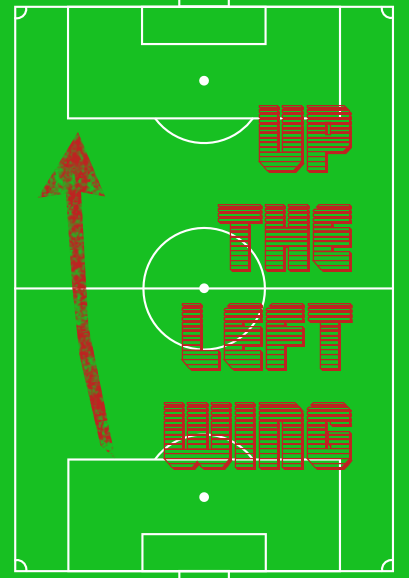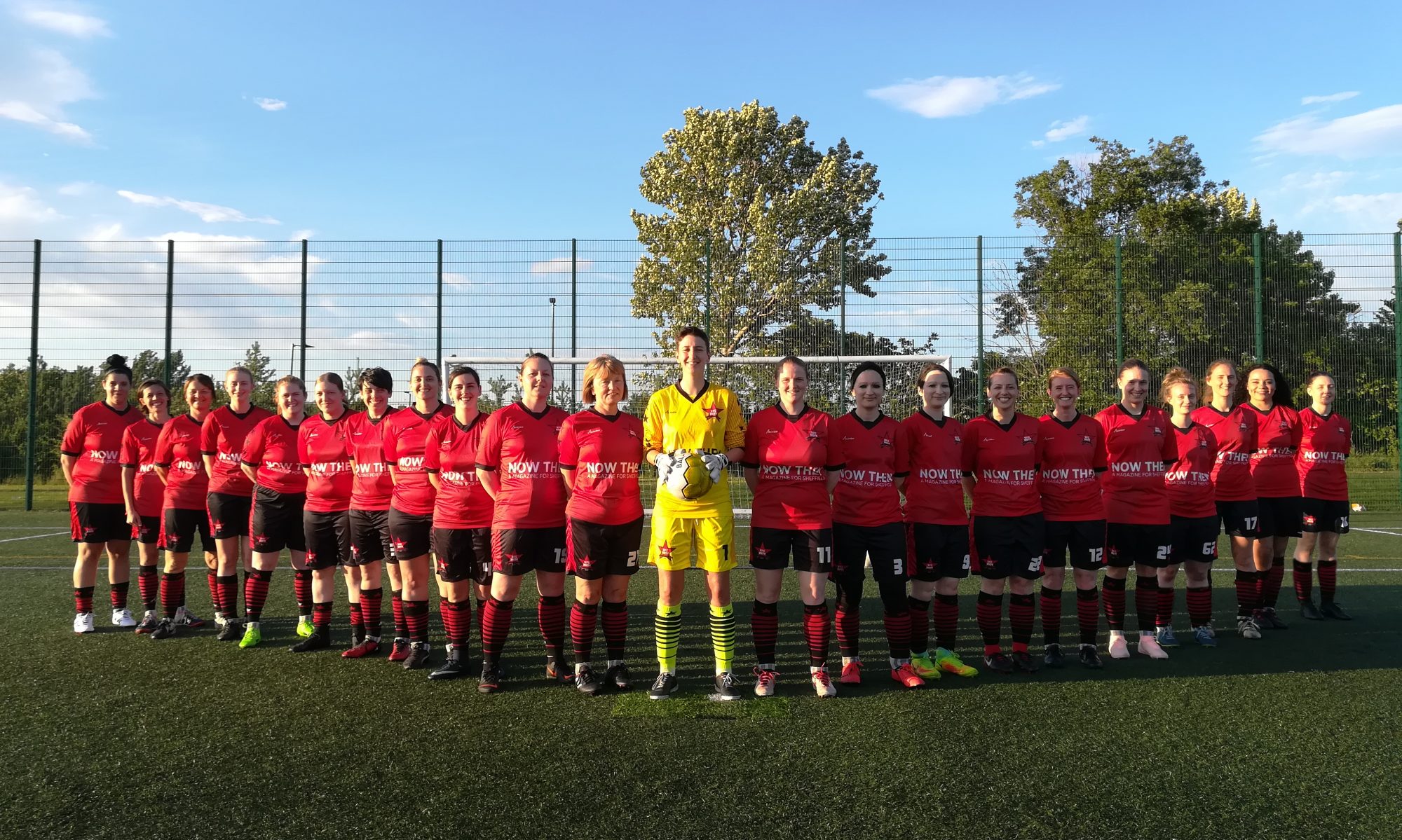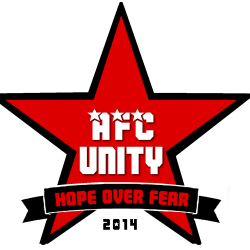
by Jay Baker
It’s a testament to AFC Unity and its ethos that despite everything, we’ve had the maximum amount of 25 registered players, and a varied 16 selected each Sunday – from a squad held together by a passion in playing for our badge, and belief in a different way of doing things. Even teams winning every week struggle to have any hope of harmony in a large roster, never mind a team losing a lot of games like we have recently. In many ways we remain the envy of the league. You read that right.
I’m not at this time talking about the national headlines, high-profile campaigns for food banks or trade unionism, or the multiple awards for our efforts, by the way. Yes, I’m talking about the football. That’s what makes us the envy of the league.

So it may seem like a strange statement to make – if you’re looking at this league from a very traditional perspective. But for those involved in our club, and even those who have come along to support us at our matches and seen what we do, it makes perfect sense.
Our current culture is dominated by short attention spans, quick fixes, and short-term gains – the kind of approach that sees this league’s previously successful teams (Rotherham United Development, Sheffield United Reserves, and even Edlington Royals and Brampton Rovers, all of whom comfortably beat us at one point or another) do so well for so long, only to then suddenly, seemingly inexplicably, vanish.
Too many teams are set up as part of a stepping stone for bigger clubs, made up of individuals seeking to be the next Steph Houghton, while other teams do well for a period of time, only to lose key players, leading to the team’s collapse. Both examples of individualism rather than, well, unity.
Our entire ethos is represented in the name and the badge, and that’s what players play for. Every single player is unique, incomparable to anyone else, each and every one bringing something different to the team, yet all part of a football philosophy and playing style that binds them together.
It also happens to be one of the most difficult playing styles to understand, grasp, and enact. Our players will happily tell you that.
This means that while a team can play a traditional, tough, crude, long ball game, and soundly beat us so they can get ahead of us in the league, we know that by sticking to our principles and playing pure, passing, team football, we won’t just still exist in the future, we’ll thrive: we’ll be even better, while that winning team only has to lose a couple of key players, or have the plug pulled on its entire project, and it’s finished; gone as quickly as those teams mentioned above – while we’re still on mission.
This season, we condensed two teams into one, added a few players who’d stopped playing but rediscovered their love for the game with AFC Unity, and then focused on team harmony, and getting the players all used to each other, so they were able to gel, and then start playing the style we want.
And they have.
Anyone who saw last week’s cup game against Wickersley will have seen some of the best football ever seen at this level: complex in formation adjustment; sophisticated build-up play; every single player involved in both attacking and defending; passing from the back; good pressing – it was slick, really slick.
And on that day, we kept playing that style, kept rotating players, kept being patient, kept thinking long-term, and even though we lost 1-2, we gained something much greater: the knowledge that we can execute high-concept football on an increasingly regular basis, all while continuously developing each and every player, rather than relying on “the brightest and the best” like so many other teams do. You won’t find any “fringe” or “utility” players here: every player is valuable, every player has their part to play, and every player in training and on matchday contributes to the development of each other and the style of play as a whole that’s enacted in games.
I think maybe one or two teams in our division have played better football than us this season: one of them have changed their head coach about three times already, and the other had their head coach tell me that in one of the games we actually played better than they did – his opinion, not mine.
So let’s not get stuck in old-fashioned ways of thinking. Any fool could take on this role, tell their players to play territorial long ball up top, bang a few goals in, win some games, and have a few players shut out of the team before quitting, with the others remaining resenting each other. It’d be easy for me to do that, too. But then Unity would be just like any other team, wouldn’t we? And we could win a heck of a lot more games this way, and find ourselves being just another statistic on FA’s Full Time website. Instead, we’ll go into next season even stronger, with a squad used to each other, as a team with absolutely no expectations and nothing at all to lose; opponents carrying the pressure to beat us – and the obsession to beat us.
No, AFC Unity are not Rotherham United Development, or Sheffield United Reserves. We’re not Edlington Royals or Brampton Rovers. And we’re not Greasbrough Youth, Hemsworth South, New Bohemians, Staveley Miners Welfare, Sheffield Rangers, Thorne United, Swinton, Anston, Hoyland, or Brodsworth – all now gone.
We’re not Shaw Lane either, or Dearne & District, or any of the other current teams beating us yet just as susceptible to the collapse-and-fold process experienced by the above-mentioned teams. That’s not a knock, by the way – it’s a challenge: I want teams to keep going, I want the league to have sustainability and a sense of consistency. We’re here to stay. That doesn’t mean we want to face a different local footballing landscape each season.
We’re already unstoppable. But the days where we’re unbeatable are just around the corner. Failing to understand that is failing to understand football.




